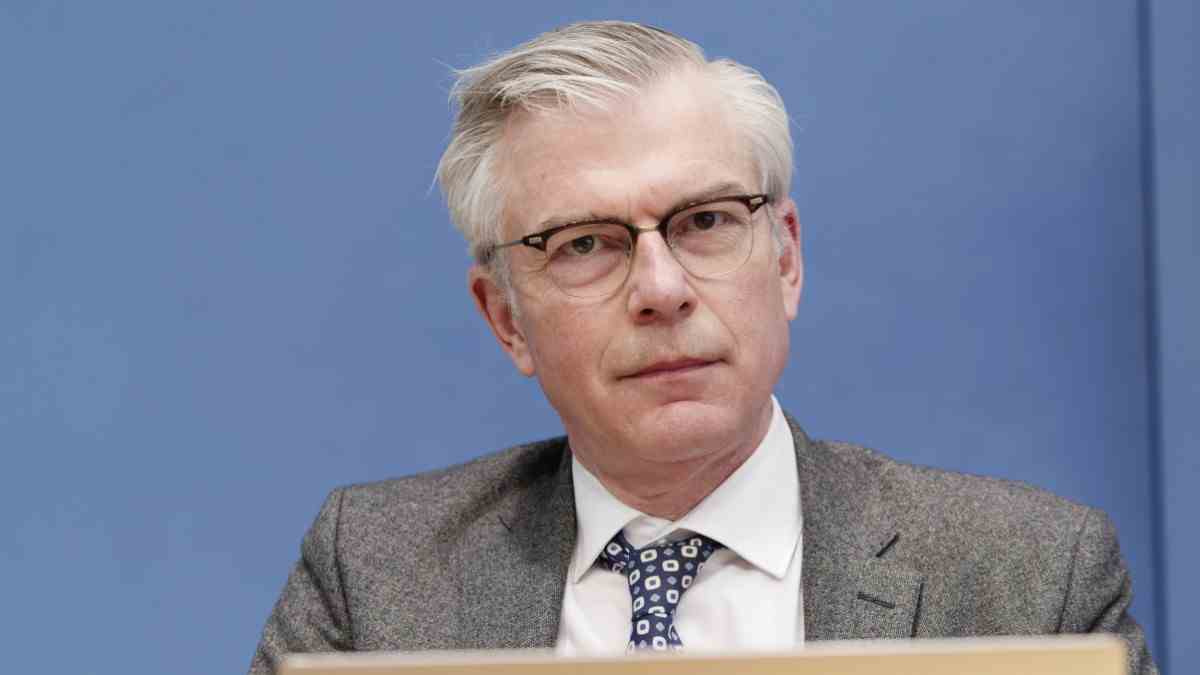The headline sounded menacing, it was classic Martin Werding. In just over ten years, the economist warned in a recent study, there will be employees properly asked to checkout. Then contributions of almost half of their income would be due for pension, health insurance and other systems – if the politicians don’t act. The Germans can now expect even more such wake-up calls, and from a prominent place. Martin Werding is to move to the Advisory Council, the most important economic policy advisory body of the federal government. There, the slightly offended departure of monetary policy crack Volker Wieland had torn a gap.
Werding’s areas of expertise are social affairs and public finance. After a period at the Munich Ifo Institute, he has been working on this since 2008 as a professor in Bochum. If you meet the 58-year-old there for a chat, he will kindly pick you up at the train station. It goes to a restaurant nearby, where you can not only talk in peace, but also eat well. Nothing against Bochum! Nevertheless, Werding commutes from Munich because of the family. After the meal we go to a cafe because the coffee tastes better there. Before that, Werding urgently needs to smoke one. This briefly gives the emphatically rational man something frivolous.
While some economists theorize or even babble around, Werding is a big calculator. The lord of the pension gaps calculates precisely that the aging of the population “will literally cause expenditure to explode”. This means huge financial gaps in pension, health and long-term care insurance. But not only there. He said as early as 2018, before the high spending in the Corona crisis: “The state budgets are not sustainable.” If politicians look further afield, national debt will rise by more than 200 percent of economic output by 2060 – more than Greece does today.
Traditionally, the trade unions and the employers can each propose one of the five ways of doing business. It is obvious why the employers are proposing Werding as Volker Wieland’s successor. Whether the government debt will get out of hand and how social security will remain affordable: these are two of the major issues of the next few years. Werding has the invoices and the concepts. From 2019, he led a welfare state commission for employers, which proposed increasing the retirement age as life expectancy increased. And for the FDP, he calculated the share pension that the traffic light coalition is introducing.
After Werding’s appointment, a fifth man or woman is now missing to complete the management team
Such roles suggest that Werding should be labeled as market-liberal in the political play of colors. But that would be too easy. The Rhinelander, who lives in Munich and works in Bochum, is a calculator, not an ideologue. He excels in his areas of expertise rather than pressing his two cents on everything from inflation to the gas embargo. This makes it difficult to classify him politically. Of course, the SPD does not like the fact that Werding is unmasking the fact that the Social Democrats do not want to touch the pension increases despite aging as unfinanceable. But the pension policy of CDU Chancellor Angela Merkel was just as oblivious to the future for 16 years.
Werding’s objective political stance is interesting because the Council of Economic Experts has de-ideologized itself in recent years. With Wieland and the former bosses Lars Feld and Christoph Schmidt, for a long time there was a market-liberal majority that automatically condemned state interventions such as the minimum wage. This majority dwindled with the appointment of economists Monika Schnitzer and Veronika Grimm, who were not firmly committed to politics. In the 2021 report, there was a 2-2 draw on the question of whether the government should incur more debt. After Werding’s appointment, a fifth man or woman is now missing to complete the management team.
Men who think they’re smart like to hammer out their views on the stage. Werding, on the other hand, lacks any bolleriness. He speaks calmly, carefully, thoughtfully. One almost has to fear that, as an economist, he won’t crowd the television microphones enough because there are loud economists standing there. But it would be a shame if the Germans didn’t hear what Martin Werding had to say.

